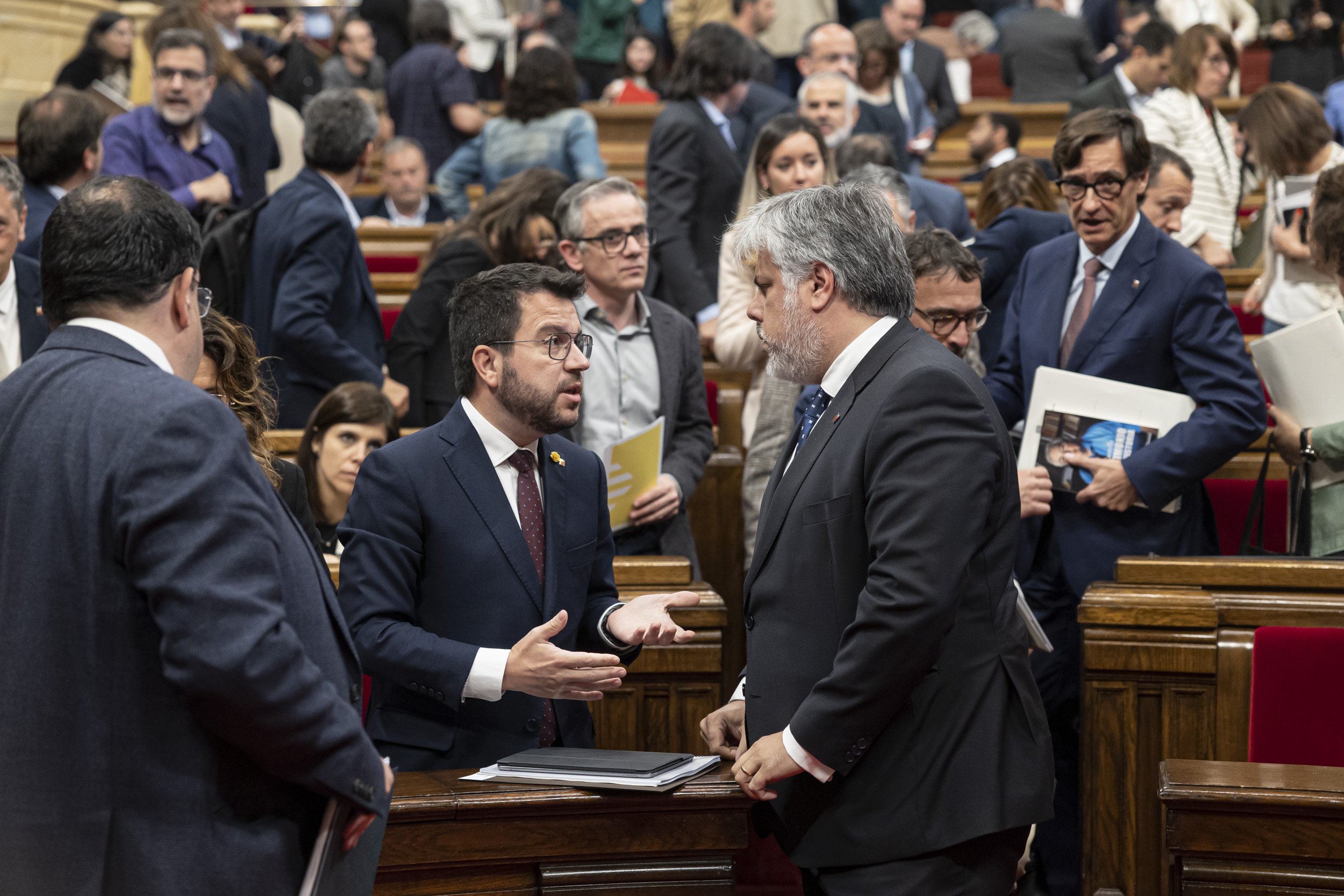A last minute agreement by the three pro-independence parties in the Catalan Parliament to present resolutions on amnesty and self-determination - as part of the current General Politics debate - has had the effect of adding pressure to the negotiation for the investiture of Pedro Sánchez as Spanish prime minister. The Catalan Republican Left (ERC) and Together for Catalonia (Junts) have agreed on a proposal for a transactional resolution which, beyond the amnesty, raises the price that the Spanish Socialist party (PSOE) will have to pay if it wants to return to the Moncloa government palace: "The Catalan Parliament declares that the Catalan political forces with representation in the Spanish [Congress] should not support an investiture of a future Spanish government that does not commit itself to work to make effective the conditions for the holding of the referendum". In other words, if the Spanish government does not agree to move towards the exercise of the right to self-determination, Pedro Sánchez will be left without the ability to form a government.
The three pro-independence parties - ERC, Junts and the CUP - had already separately presented proposed resolutions on Wednesday, also on self-determination. The main differences between the parties were to do with the link between this subject and the amnesty, the role of the 1st October referendum and what conditions should be imposed on a possible investiture of the PSOE leader. The agreement signed by ERC and Junts stipulates that the resolution of the political conflict between Catalonia and the Spanish state must "proceed via the political and democratic route, and reassert the defence of the exercise of the right to self-determination". "It will be possible to replace the mandate that resulted from the 1st October 2017 referendum with a new referendum agreed with the state", they add, while indicating that the Catalan government is urged to "take all the appropriate actions to make it a reality". The CUP did not take part in this because, as deputy Xavier Pellicer explained in a media appearance, they do not see it as good to accept as the "only strategy" that the referendum must be agreed with the state in order to obtain the right to self-determination.
The story of the negotiations
After the parties presented separate proposals on Wednesday, it seemed that, this Thursday morning, reaching an understanding between the pro-independence parties would be more complicated. At the same time, however, both ERC and Junts were aware that there was a lot at stake in the current political context, and were looking for a minimum agreement to try and avoid the image of a Parliament unable to pass any of the proposals on amnesty and self-determination by a majority. The deadline for presenting a transaction ended at 5pm afternoon, and from the early hours of the morning until then, meetings between the leaders of the pro-independence parliamentary groups intensified to explore how to reach an agreement. It reached the point where they had to request an extension of the period to register the transactions, and thus was duly extended until 5:30pm at the request of ERC and Junts.
The three parties maintain that the amnesty to end independence process prosecutions is a necessary but not sufficient condition for the investiture, and from this point, ERC and Junts agreed to make the investiture of Pedro Sánchez dependent on "making a commitment to work to make effective the conditions for the holding of the referendum". When the president-in-exile, Carles Puigdemont, in his Brussels speech on September 5th, outlined the four key lines that would enable the "historic agreement", he placed international treaties and agreements as the only limits in matters of self-determination. In fact, this is how Junts initially defined it in its proposed resolution on Wednesday, recalling that Article 96 of the Spanish Constitution alludes to these treaties, which could make the referendum possible. In spite of placing this demand on the Spanish government, neither party considers that this makes the negotiation more difficult, since they maintain that they have already set out the conditions for the agreement.

